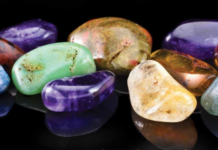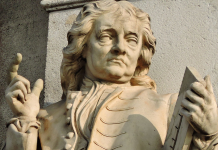 Victor Hugo’s Conversations with the Spirit World: A Literary Genius’s Hidden Life, by John Chambers
Victor Hugo’s Conversations with the Spirit World: A Literary Genius’s Hidden Life, by John Chambers
Destiny Books, 1594771820, 372. pp, 1999, 2009
I’m sure that, at one time or another, many of us have played with a Ouija ™ board. And we may have gotten “messages from beyond.” Most of us, I am sure, tired quickly of it, or had serious doubts about the information coming through the board.
Well, Victor Hugo lived before the Ouija ™ board was created. He did, however, live during the time when Spiritualism was in its heyday. The use of small, lightweight, three-legged tables to tap out messages was commonplace in parlours across Europe. The uncommon aspects of M Hugo’s attempts were quite extraordinary, however. They included the people involved (writers, philosophers, and military men) as well as the “sources” of this information (living individuals [Napoleon III], concepts [Civilization], as well as the more common discarnate individuals).
The book, which is an expansion of a previous work by the same author, consists primarily of transcripts of table-tapping sessions held by Victor Hugo and a circle of family and acquaintances during his stay on the isle of Jersey from September 1853 to October of 1855. The results of these séances were remarkable for a number of reasons, not the least of which was the sheer diversity of the “spiritual” contacts. Add to that the quantity and quality of information conveyed to the great French author and the effect they may have had on his later writings and their importance is hard to overlook.
Whether or not you believe the thoughts communicated to M Hugo by the tapping tables; whether or not he believed them, is not the point. Such thoughts us, and him, to examine what is believed to be true. Such examinations lead to revelations of (at the very least) personal truths. And these truths may, and often do, lead to revolutions in thought and attitude.
The writings of Victor Hugo pre-séance experience are not the writings post-séances. He had already given the world much poetry and The Hunchback of Notre Dame before he was exiled to Jersey. He gave the world Les Miserables after his exile ended. Is the latter better than the former? That is for each individual to determine for themselves, but it was certainly different.
When the author strays away from the story of M Hugo’s experiences and into a related story involving James Merill and his experiences, it tends to become a bit more moralizing and “New Agey” and that does (in my opinion) detract from its value slightly.
This is a book which will have, as do many from this publisher, a limited appeal to the general public. It is not likely to fly off the shelves and become a best seller. But for those individuals who have an interest in either the works of Hugo or the Spiritualism movement this will become a valued addition to their library. It is eminently readable and very informative.








